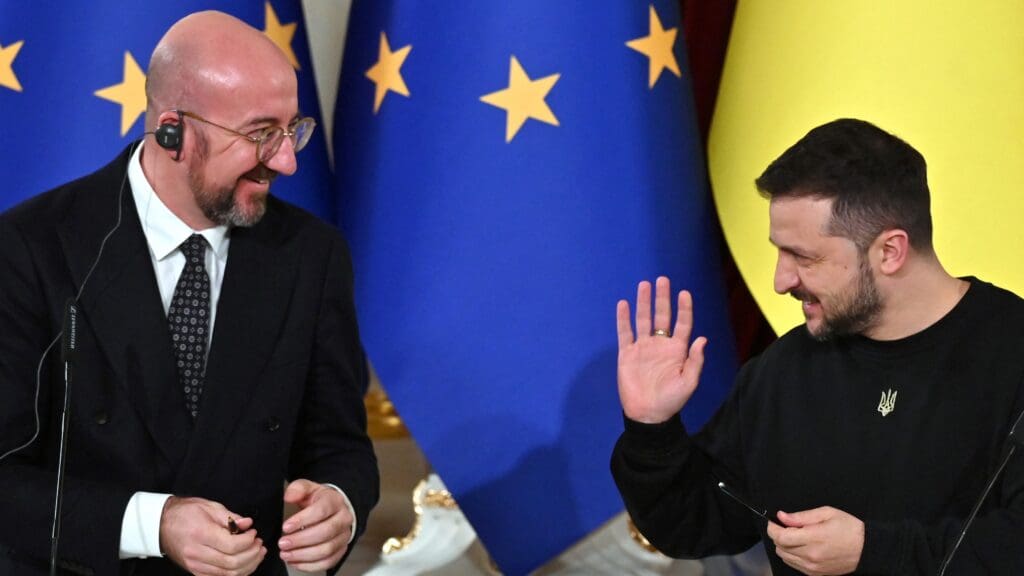Today, 5 December, marks the twentieth anniversary of the 2004 referendum on granting Hungarian citizenship to cross-border Hungarians. Yes, it is history now. Hungarian history textbooks currently in use in schools also include this date, so anyone who picks one up can read and learn about it. ‘One of the questions of the referendum held on 5 December 2004 was about the possibility for Hungarians living beyond the borders of Hungary to obtain Hungarian citizenship through preferential naturalization. The referendum was invalid.* However, in 2010 the parliament passed the Naturalization Act, in accordance with the referendum’s question,’ one of the textbooks explains.
Strange feelings are stirring inside me. Looking at the calendar, my first thought was, oh God, time flies. I was in 10th grade when that referendum took place, the referendum that is now history. But before I immerse myself into the philosophy of passing time, I am struck by pain, mixed with shame, even though it all happened twenty years ago, when I was not even eligible to vote, which is to say that I had nothing to do with it. Yet I still feel this way, because the inconclusive referendum held a few years after the millennium is still a blot on Hungarian society. Thanks to a section of the Hungarian political elite of the time and a large number of misguided voters, that day became a day of national betrayal. But what happened exactly? Who are the people responsible for this incident now relegated to the dark pages of Hungarian history?
‘Thanks to a section of the Hungarian political elite of the time and a large number of misguided voters, that day became a day of national betrayal’
MSZP and SZDSZ, the Main Culprits
The governing parties of the time, the Socialist (MSZP)/Free Democrat (SZDSZ) coalition, led by then-Prime Minister Ferenc Gyurcsány, did everything in their power to ensure that the referendum failed. Unfortunately, their ideas about Hungarians living beyond the borders were already clear from the events of the previous years. For example, shortly after their election victory, on 1 December 2002, the anniversary of the annexation of Transylvania, Socialist Prime Minister Péter Medgyessy and his associates drank a champagne toast at the Kempinski Hotel in Budapest with their Romanian counterparts at the time, former Prime Minister Adrian Năstase and his fellow party members, in celebration of the Romanian Great Union Day. Former President of the Republic Árpád Göncz, who described himself as a liberal, and former Foreign Minister László Kovács of the Socialists were also present.
This already spoke volumes, so it came as no surprise two years later that regarding the question on the preferential naturalization of Hungarians with non-Hungarian citizenship, which was included among the referendum questions at the initiative of the World Federation of Hungarians, the government of Ferenc Gyurcsány incited Hungarians living in the truncated motherland against their Hungarian brothers and sisters beyond the border in a stomach-turning manner and style. Unfortunately, we still have vivid memories of the time when billboards across the country told us that if the referendum was successful, ‘23 million Romanians’ would pour into Hungary, taking our jobs and basically everything else. ‘We should not pay taxes and pensions for others! We should not pay with our jobs because of cheap workers from across the border! We should not pay 20,000 forints a month from our family budget! we should not pay with our dreams because the housing situation is getting harder!’ These campaign slogans will forever remain burned into our minds. And just when one thought it was impossible to sink any lower, the most revolting sentence of all on the billboards came: ‘Dual citizenship is not a solution for Hungarians living beyond the border, but a significant burden for the country and us.’
The Patriots
Of the organizations supporting the idea of dual citizenship Fidesz was the most influential one, with Viktor Orbán expressing his support for simplified naturalization at a meeting with local Hungarians in Szabadka (Subotica, Serbia) on 12 September 2004. Fidesz saw dual citizenship as a way of reunifying the Hungarian nation torn apart by the Trianon peace treaty. The Hungarian Democratic Forum (MDF), also in opposition, supported the initiative as well and urged voters to vote ‘yes’, while the smaller governing party, the Free Democrats, through its popular politician Gábor Fodor, encouraged its supporters to vote ‘no’. While on 2 November 2004 Ferenc Gyurcsány openly refused to support the referendum, former Socialist House Speaker Katalin Szili** advised left-wing voters to ‘vote their conscience’.
The intensity of the campaign around the referendum on dual citizenship far surpassed that of any previous referendum. The organizations of Hungarians living beyond the borders of Hungary also became involved, and countless NGOs and individuals who supported the concept of a unified nation came out and expressed their opinions, most of them urging voters to vote yes regarding the question of dual citizenship. The Hungarian Justice and Life Party (MIÉP), which was still significant but was no longer in parliament at the time, campaigned intensively for voting ‘yes’, and Jobbik, which was seeking to replace MIÉP, came out in support of the preferential naturalization of ethnic Hungarians as part of its first independent political campaign.
The climax of Fidesz’s pro-yes campaign was the Day of Unity rally held on 27 November 2004 in the City Park in Budapest, where Viktor Orbán described the referendum fateful for all Hungarians.
‘Fidesz saw dual citizenship a way of reunifying the Hungarian nation torn apart by the Trianon peace treaty’
The Referendum and Its Repercussions
More than 3 million voters took part in the referendum of 5 December 2004. As this was just 37.49 per cent of all eligible voters, the referendum was declared invalid. Thanks to the relentless propaganda by the Socialist government and its allies, the country was deeply divided over the issue: 1.521.271 of those how cast valid votes voted in favour of granting preferential naturalization to cross-border Hungarians (51.57 per cent), and 1.428.578 voters marked ‘no’ on their ballot papers (48.43 per cent).
The referendum provoked bitter reactions from representatives of Hungarians living beyond the border, who blamed the incumbent government for distancing itself from the dual citizenship issue. Even after the referendum, the disappointment led to negative sentiments against pro-government politicians across the whole Carpathian Basin. The foreign press saw the events as a major defeat of the right, which appealed to nationalist sentiments, with low participation signalling indifference to the issue and the high number of ‘no’ votes a rejection of national approaches.
No new bill on dual citizenship was submitted to parliament at the time, but the issue remained an important topic in public discourse for a long time. The second Orbán government, formed after the parliamentary elections of 2010, granted Hungarian citizenship to ethnic Hungarians living beyond the borders after the overwhelming majority of MPs voted in favour of the dual citizenship law.
On 16 January 2013 in Kolozsvár (Cluj-Napoca, Romania), the president of the Hungarian Socialist Party, Attila Mesterházy, belatedly apologized to the Hungarians living beyond the border for his party’s campaign in 2004 which contributed to denying them the possibility of preferential naturalization. ‘By doing so, we damaged Hungarian–Hungarian relations and aroused feelings among Hungarians living beyond the border that rightly offended them. It was a wrong political decision, and we apologize to all those who were hurt by it,’ said Mesterházy. However, this will not change the fact that because of the former left-liberal government, the referendum twenty years ago has gone down in Hungarian history as a day of national betrayal.
*In Hungary, for a referendum to be valid at least half of all eligible voters need to cast a vote, and is conclusive if at least half of those who cast a valid vote gave the same answer to the referendum question.
**Today Katalin Szili serves as chief advisor to the prime minister.
Related articles:








